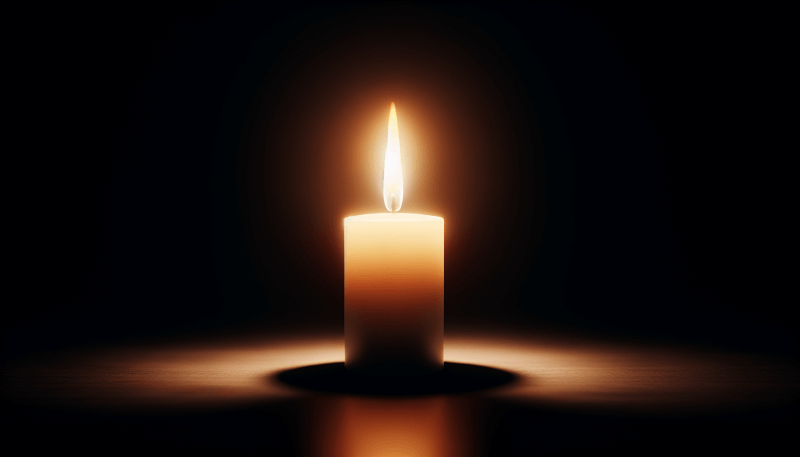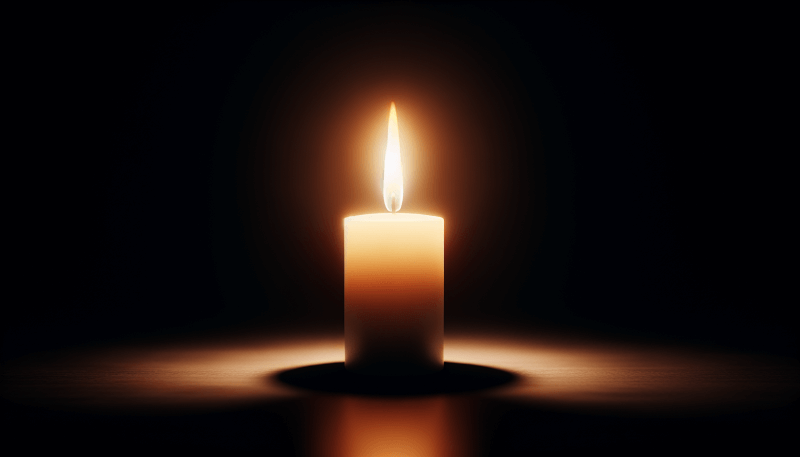Imagine finding yourself in a situation where the lights suddenly go out, leaving you in complete darkness and without any access to electricity. It can be a daunting and uncertain experience, but fear not! In this article, you will discover a comprehensive survival guide filled with 20 proven tips to help you navigate through a blackout and live without electricity. From utilizing alternative lighting sources to preserving your food and staying connected, these tips will empower you to be prepared and resilient in the face of unexpected power outages. So, grab a flashlight, settle into a comfortable spot, and let’s explore this guide to surviving and thriving without electricity!
Emergency Preparedness
Create an Emergency Kit
When it comes to being prepared for emergencies, having an emergency kit is essential. This kit should contain all the necessary items that you and your family may need in case of a power outage or any other emergency situation. Some important items to include in your emergency kit are:
- Flashlights and batteries
- First aid supplies
- Non-perishable food items
- Bottled water
- Blankets or sleeping bags
- Portable phone charger
- Extra set of clothes
- Important documents (such as identification, insurance information)
- Cash
By having an emergency kit readily available, you can quickly access the necessary supplies and ensure the safety and well-being of yourself and your loved ones during an emergency.
Stock up on Non-Perishable Food and Water
In the event of a blackout or any other emergency that disrupts the power supply, it is crucial to have an ample supply of non-perishable food and water. Non-perishable food items such as canned goods, granola bars, and dried fruits can provide sustenance when fresh food becomes unavailable. It is recommended to stockpile at least a two-week supply of non-perishable food per person.
Similarly, having an adequate supply of bottled water is vital. Store at least one gallon of water per person per day, and remember to also include water for your pets. Water is essential for hydration and can also be used for cooking and personal hygiene purposes when the regular water supply is compromised.
Have a Portable Generator
Investing in a portable generator can prove to be a lifesaver during a blackout or any other power outage. A portable generator can provide you with temporary power and allow you to keep essential appliances and devices running. It is important to choose a generator that meets your power needs and is compatible with your home’s electrical system. Be sure to follow all safety guidelines and regularly maintain your generator to ensure its proper functioning.
Invest in Solar Power Systems
Another alternative to consider for emergency power needs is solar power systems. Solar panels harness energy from the sun and convert it into electricity, which can be used to power your home during a blackout. By investing in solar power systems, you can reduce your reliance on the traditional power grid and have a sustainable source of energy in emergencies. Additionally, solar power systems can help you save on utility bills and contribute to a greener environment.
Lighting Alternatives
Use Battery-powered Flashlights
When the lights go out, having battery-powered flashlights can make a significant difference in navigating through your surroundings. Keep a supply of batteries on hand, specifically for the flashlights, and make sure to check their functionality regularly. Battery-powered flashlights are practical, portable, and an essential tool for emergency preparedness.
Get Hand-Cranked Flashlights and Lanterns
Hand-cranked flashlights and lanterns are excellent alternatives to battery-powered options. By simply turning a crank, these devices generate power to illuminate your surroundings. They eliminate the need for batteries and provide a reliable source of light during an outage. Additionally, hand-cranked flashlights and lanterns often come with additional features such as built-in radios or USB ports to charge small devices.
Utilize Candles and Oil Lamps
Candles and oil lamps have been used for centuries as a source of light during blackouts and power outages. They create a cozy ambiance and provide sufficient lighting for smaller spaces. However, it is essential to exercise caution when using open flames and ensure proper ventilation to prevent accidents and keep your home safe.
Try Solar-powered Lights
Solar-powered lights are an eco-friendly choice for emergency lighting. These lights absorb sunlight during the day and store the energy in rechargeable batteries, which can then be used to provide illumination during the night. Solar-powered lights are easy to install, require minimal maintenance, and are a sustainable alternative to traditional lighting sources.
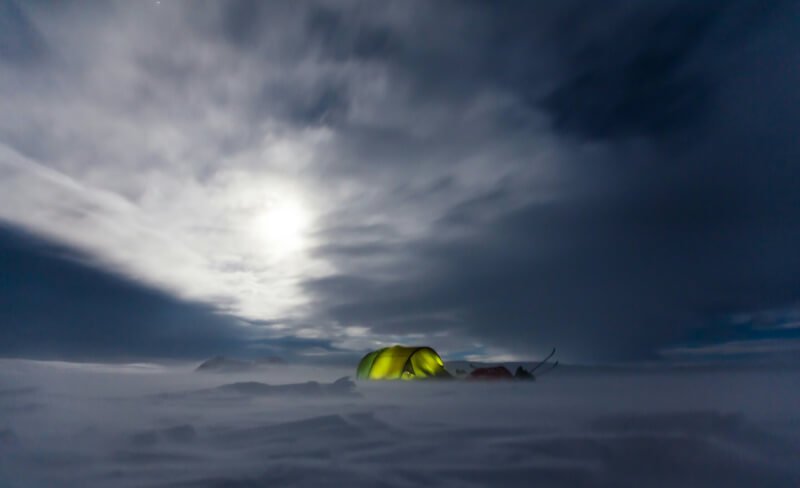
Cooking and Heating
Use Portable Camping Stoves
During a blackout or emergency situation, cooking can become a challenge without a functioning stove or microwave. Portable camping stoves are a practical solution that allows you to prepare meals even when the power is out. These stoves are compact, easy to use, and can be fueled by propane or butane. They provide a reliable heat source and allow you to cook meals or boil water for drinking or sanitization purposes.
Stockpile Fuel for Cooking and Heating
If you have a traditional stove or fireplace that requires fuel, it is essential to stockpile an adequate amount in case of an emergency. Propane, charcoal, or firewood are common fuels used for cooking and heating during power outages. Ensure that your fuel is stored correctly in a dry and well-ventilated area, away from potential sources of ignition.
Learn to Cook with an Open Fire
In situations where traditional cooking methods are not available, knowing how to cook with an open fire could be a valuable skill to have. Learn proper fire safety techniques and consider investing in a portable grill or outdoor cooking equipment specifically designed for open fire cooking. Practice cooking simple meals over an open flame to familiarize yourself with the process and improve your ability to adapt during emergencies.
Invest in a Wood-burning Stove
A wood-burning stove is a more permanent solution for cooking and heating during an extended power outage. These stoves utilize wood as fuel and can provide both warmth and a cooking surface. They are typically installed in a well-ventilated area and require regular maintenance. Ensuring proper installation and adhering to safety guidelines are crucial when using a wood-burning stove.
Water Supply
Store Water in Containers
Storing an adequate supply of water is of utmost importance during an emergency. Clean, food-grade water containers are essential for safely storing water for drinking and hygiene purposes. It is recommended to have at least a three-day supply of water per person, with one gallon per person per day being the general guideline. Store water in a cool, dark place away from direct sunlight to prevent bacterial growth or contamination.
Learn Methods to Purify Water
In situations where the regular water supply is compromised, it is necessary to know how to purify water to make it safe for consumption. Boiling water is one of the most effective methods to kill pathogens and make it safe to drink. Additionally, water purification tablets, filters, or ultraviolet (UV) light sterilizers can be used to remove contaminants and ensure water safety. Familiarize yourself with different purification methods and have the necessary supplies on hand.
Collect Rainwater
Rainwater can serve as an additional source of water during a blackout or emergency situation. Collecting rainwater is a sustainable practice and can supplement your water supply. Set up rain barrels or similar containers to collect rainwater from gutters or rooftops. Remember to filter and purify rainwater before using it for drinking or cooking.
Find Alternative Sources of Water
In a prolonged emergency situation, finding alternative sources of water may become necessary. Rivers, lakes, or streams (if accessible and safe) can provide a potential water supply. However, it is crucial to treat and purify any water from these sources before consumption. Portable water filters or purifiers specifically designed for outdoor use can be valuable tools for obtaining safe drinking water from natural sources.
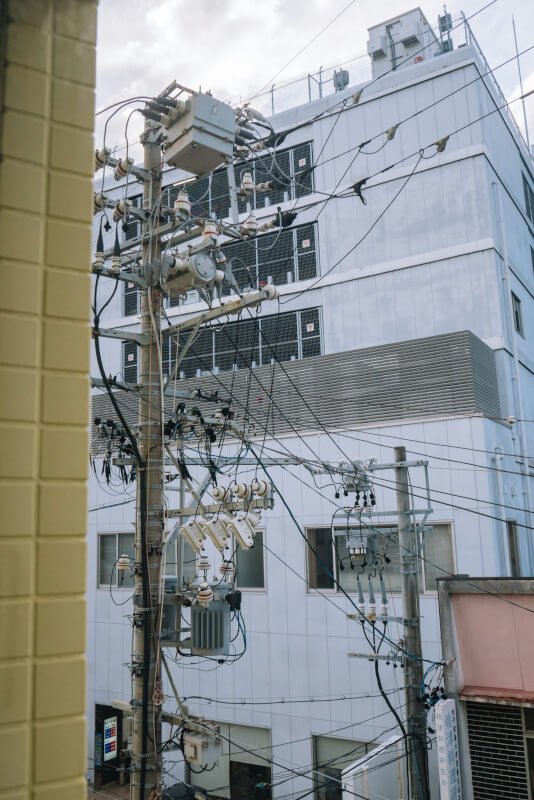
Food Preservation
Make Use of Canning and Preserving Techniques
When faced with a prolonged blackout or emergency situation, preserving perishable food becomes essential. Canning and preserving techniques allow you to extend the shelf life of food, minimizing waste and ensuring a steady food supply. Invest in canning jars, a pressure canner, and learn proper canning procedures. Preserve fruits, vegetables, and other perishable items when they are in season to have a variety of preserved food available during emergencies.
Consider Dehydrating Food
Dehydrating food is another effective method of preserving food without electricity. Dehydrated food has a longer shelf life and can be rehydrated when necessary. Invest in a food dehydrator or learn how to dehydrate food using alternative methods such as air-drying or using the sun’s heat. Dehydrated fruits, vegetables, and jerky can provide nutrition and variety to your emergency food supply.
Get a Cool Storage Area
Having a cool storage area for perishable items is essential, even during a blackout. Find a suitable spot in your home or consider creating a designated storage area that remains cool even without refrigeration. Basements, cellars, or any area with proper ventilation and insulation can serve this purpose. Utilize this space to store perishable items such as dairy products, fruits, and vegetables, ensuring they stay fresh for an extended period.
Understand Root Cellar Basics
A root cellar is an underground storage space specifically designed to keep fruits, vegetables, and other perishables fresh for an extended period. If you have access to a basement or a suitable area, consider converting it into a root cellar. The cool, dark environment of a root cellar helps regulate temperature and humidity, preserving the freshness of your food supply. Research proper ventilation and insulation techniques for optimal results.
Communication
Create an Emergency Communication Plan
Good communication is crucial during emergencies, especially when power outages disrupt regular means of communication. Establishing an emergency communication plan with your family or household members will help ensure everyone’s safety and well-being. This plan should include:
- Emergency contact numbers
- Meeting points in case of separation
- Communication devices and backup power sources
- Emergency services’ contact information
- Out-of-town contact person
By having a well-thought-out communication plan, you can stay connected with your loved ones and receive vital information during blackout situations.
Invest in a Battery-powered or Solar-powered Radio
During a blackout, a battery-powered or solar-powered radio becomes your link to the outside world. These radios provide access to emergency broadcasts, news updates, and essential information during power outages. By investing in a reliable radio that uses alternatives sources of power, you can stay informed about the situation and make informed decisions.
Use Handheld CB or Ham Radios
Handheld CB (Citizens Band) radios or ham radios are another valuable communication tool during emergencies. These radios allow short-range communication between individuals, and they can be instrumental in coordinating with neighbors or other members of your community. Familiarize yourself with their operation and consider joining local ham radio groups to enhance your communication capabilities.
Have a Whistle or Signal Flares
In situations where traditional communication methods are not available, having alternative signaling devices can be vital. A whistle or signal flares can help draw attention in case of an emergency or when you need assistance. These compact devices are easy to carry and provide a way to communicate your location or signal for help when other means of communication are unavailable.

Personal Hygiene
Stock Up on Hygiene Supplies
Maintaining personal hygiene during a blackout is essential for your overall well-being. Stock up on hygiene supplies, including toiletries, soap, toothpaste, and feminine hygiene products. Ensure you have an ample supply to last through an extended emergency situation. Consider purchasing travel-sized items that are easier to store and transport.
Learn Alternatives to Showers
When access to running water is limited, alternatives to traditional showers can help you stay clean and refreshed. Wet wipes or baby wipes can be used for sponge baths or to freshen up when water is scarce. Dry shampoo is a useful product for maintaining cleanliness and managing greasy hair when washing is not possible. These alternatives can make a significant difference in personal hygiene during emergencies.
Make Use of Wet Wipes and Dry Shampoo
Wet wipes are versatile and come in handy in various situations. Besides personal hygiene, they can be used for cleaning surfaces, refreshing hands, and even removing stains. Pack a sufficient quantity of wet wipes in your emergency kit to ensure cleanliness and sanitation.
Dry shampoo is another valuable product that can help maintain cleanliness in the absence of regular showers. It absorbs excess oil from the hair, leaving it feeling clean and refreshed. Include dry shampoo in your hygiene supplies, and familiarize yourself with its proper usage to keep your hair feeling and looking clean during extended periods without electricity or running water.
Consider Composting Toilets
In situations where access to functioning sewage systems is restricted, composting toilets provide a viable solution for managing human waste. These toilet systems convert human waste into compost through natural processes, eliminating the need for traditional plumbing or septic systems. Educate yourself on the usage and maintenance of composting toilets, ensuring proper waste management and sanitation even during blackout situations.
Medical Preparedness
Stockpile Essential Medications
If you or any family members have ongoing medical conditions that require medication, it is essential to have a stockpile of essential medications. During a blackout or emergency, access to pharmacies or medical facilities may be limited. Ensure you have an ample supply of necessary medications to last through the emergency situation. Check expiration dates regularly and rotate your stock to maintain its freshness.
Learn Basic First Aid Skills
When medical help may not be readily available, learning basic first aid skills can greatly enhance your ability to respond to emergencies. Take a first aid course or research basic first aid techniques to effectively treat minor injuries and provide initial care until professional medical assistance can be obtained. Additionally, having a well-equipped first aid kit is essential for emergencies—keep it readily accessible and frequently check and restock its contents.
Invest in a Well-equipped First Aid Kit
A well-equipped first aid kit is an essential component of any emergency preparedness plan. Ensure your first aid kit includes items such as bandages, disinfectants, sterile gloves, pain relievers, antiseptic creams, and any specific medications or supplies needed for your family members. Regularly check the contents, replenish items, and familiarize yourself with their proper usage.
Know Alternative Remedies
In situations where medical professionals or standard medications may not be available, knowledge of alternative remedies can be beneficial. Research natural remedies or homeopathic treatments for common ailments or minor injuries. For example, essential oils, herbal teas, or homemade salves can provide relief for specific symptoms. However, it is important to approach such remedies with caution and consult professionals when necessary.
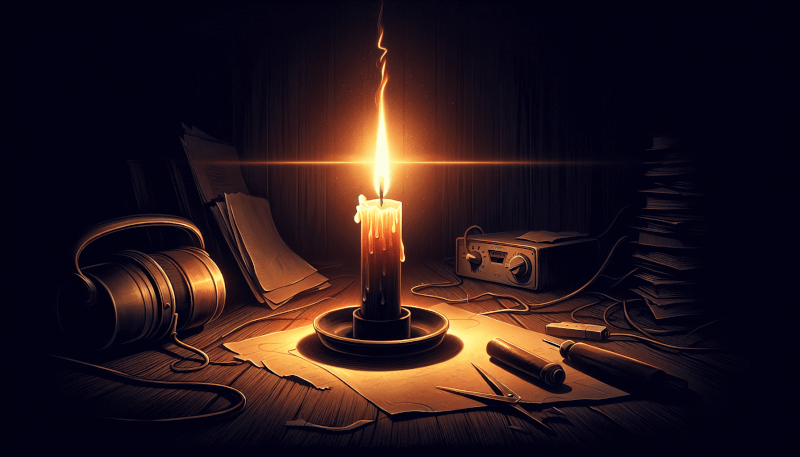
Entertainment and Mental Well-being
Have Board Games and Playing Cards
During a blackout or power outage, having forms of entertainment can greatly alleviate stress and provide a sense of normalcy. Keeping board games and playing cards in your emergency kit can be a great way to pass the time and engage with family members. These timeless classics are easy to store, require no power, and can provide hours of fun and entertainment.
Stockpile Books and Magazines
A blackout situation can provide an opportunity to catch up on reading or explore new topics. Stockpile a collection of books, magazines, or other reading materials that cover a wide range of interests. These can serve as a source of entertainment, education, and mental stimulation when other forms of electronic entertainment are unavailable.
Consider Hobbies like Knitting or Drawing
Engaging in hobbies that do not rely on electricity can be a productive and enjoyable way to spend time during a blackout. Hobbies such as knitting, drawing, or painting require minimal supplies and provide a creative outlet. Consider learning a new craft or honing existing skills to keep yourself mentally active and occupied during prolonged power outages.
Practice Mindfulness and Meditation
During stressful situations like blackouts, it is essential to prioritize mental well-being. Practicing mindfulness and meditation can help reduce anxiety, improve focus, and promote overall calmness. Take the opportunity of a blackout to embrace mindfulness exercises, breathing techniques, or guided meditation practices. These can help you stay mentally centered and maintain a positive mindset during challenging times.
Safety Measures
Install Smoke Detectors and Carbon Monoxide Alarms
Maintaining your safety during a blackout extends beyond having access to essential supplies. Install smoke detectors and carbon monoxide alarms in your home to ensure early detection and prevention of potential hazards. Regularly test these devices and replace batteries as needed. These simple safety measures can save lives and provide peace of mind.
Secure Your Home with Deadbolts and Reinforcements
During a blackout, security can become a concern. Take steps to secure your home by installing deadbolts, reinforcing doors and windows, and strengthening entry points. These measures can deter potential intruders and help keep your family and belongings safe. Invest in security devices such as door jammers or window alarms for added protection.
Have Fire Extinguishers Accessible
A fire outbreak can be a catastrophic event during a blackout. Having fire extinguishers readily accessible in your home can help contain and extinguish small fires before they escalate. Ensure everyone in your household knows the location of fire extinguishers and how to operate them correctly. Regularly inspect and maintain fire extinguishers to ensure their functionality.
Learn Self-Defense
In situations where personal safety may be at risk, learning self-defense techniques can provide you with the necessary skills and confidence to protect yourself and your loved ones. Consider enrolling in self-defense classes, learning basic martial arts moves, or practicing techniques on your own. Knowing how to defend yourself can provide peace of mind and potentially deter potential threats.
In conclusion, being prepared for emergencies and blackouts is essential for your safety and well-being. By following the tips provided in this comprehensive article, you can create a plan and gather the necessary supplies to navigate through power outages and other emergency situations with confidence. From creating an emergency kit to learning alternative methods for cooking and staying connected, being prepared will help you and your loved ones thrive and survive during challenging times. Remember, preparation is key, and the effort you put into emergency preparedness today could make all the difference in a blackout tomorrow. Stay safe, stay prepared, and be ready for whatever comes your way!
